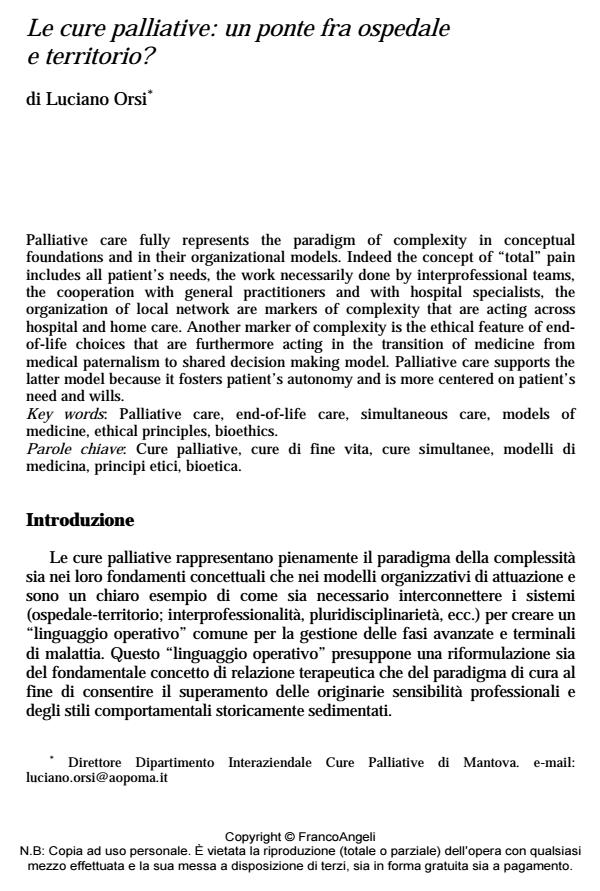Le cure palliative: un ponte fra ospedale e territorio?
Titolo Rivista SALUTE E SOCIETÀ
Autori/Curatori Luciano Orsi
Anno di pubblicazione 2015 Fascicolo 2015/3
Lingua Italiano Numero pagine 12 P. 147-158 Dimensione file 70 KB
DOI 10.3280/SES2015-003012
Il DOI è il codice a barre della proprietà intellettuale: per saperne di più
clicca qui
Qui sotto puoi vedere in anteprima la prima pagina di questo articolo.
Se questo articolo ti interessa, lo puoi acquistare (e scaricare in formato pdf) seguendo le facili indicazioni per acquistare il download credit. Acquista Download Credits per scaricare questo Articolo in formato PDF

FrancoAngeli è membro della Publishers International Linking Association, Inc (PILA), associazione indipendente e non profit per facilitare (attraverso i servizi tecnologici implementati da CrossRef.org) l’accesso degli studiosi ai contenuti digitali nelle pubblicazioni professionali e scientifiche.
Palliative care fully represents the paradigm of complexity in conceptual foundations and in their organizational models. Indeed the concept of "total" pain includes all patient’s needs, the work necessarily done by interprofessional teams, the cooperation with general practitioners and with hospital specialists, the organization of local network are markers of complexity that are acting across hospital and home care. Another marker of complexity is the ethical feature of endof- life choices that are furthermore acting in the transition of medicine from medical paternalism to shared decision making model. Palliative care supports the latter model because it fosters patient’s autonomy and is more centered on patient’s need and wills.
Parole chiave:Cure palliative, cure di fine vita, cure simultanee, modelli di medicina, principi etici, bioetica
Luciano Orsi, Le cure palliative: un ponte fra ospedale e territorio? in "SALUTE E SOCIETÀ" 3/2015, pp 147-158, DOI: 10.3280/SES2015-003012